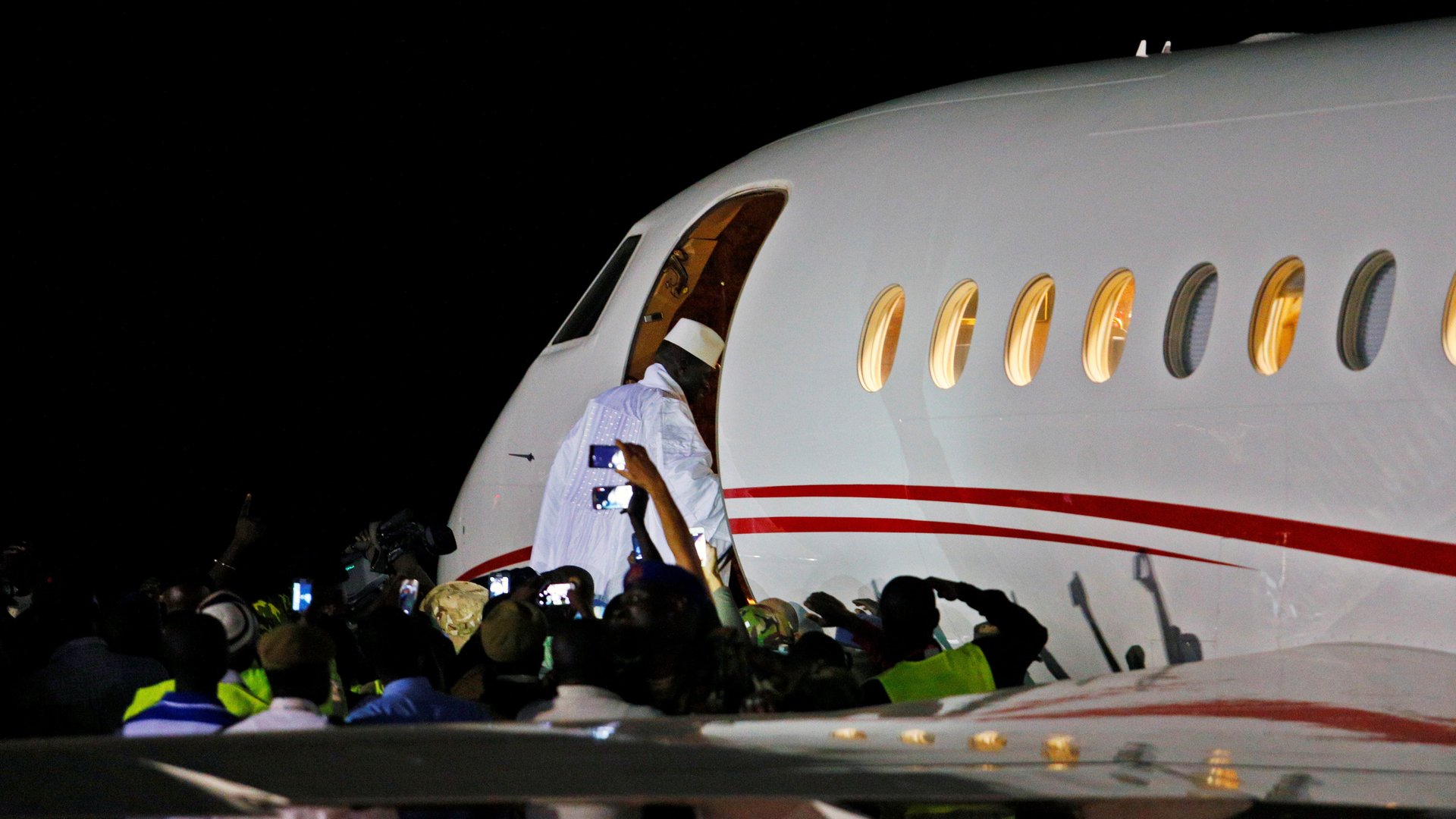Gambia’s longtime autocratic leader finally leaves the country to go into exile
Gambia’s former president Yahya Jammeh finally left the country on Saturday evening local time after several days of negotiations with West African leaders and Gambia’s incoming government over the terms of his exit from office.


Gambia’s former president Yahya Jammeh finally left the country on Saturday evening local time after several days of negotiations with West African leaders and Gambia’s incoming government over the terms of his exit from office.
Locals were relieved that his departure managed to take place without a violent resolution as tension had built up while the protracted negotiations carried on. The erratic former leader left from capital city Banjul on a plane headed to Conakry, Guinea, and is expected to leave there to spend his time in exile in Equatorial Guinea.
Many Gambians believe that had Jammeh stayed in the country, he would never have actually relinquished power to the incoming government of president Adama Barrow. Jammeh’s departure brought an end to 22 years of eccentric and repressive rule over a small country which has not made much economic progress under his leadership. Instead, a disproportionately high number of young Gambians have left home to risk their lives crossing the Mediterranean in an attempt to reach Europe.
Jammeh, 51, had agreed 24 hours earlier to step down nearly two months after losing a general election to Adama Barrow. Jammeh initially agreed to hand over peacefully soon after the elections only to change his mind. His final agreement to step down and leave the country only came after soldiers from neighbor Senegal crossed the border under the auspices of the Economic Community of the West African States (ECOWAS).
The focus for Gambians has now turned to calling Jammeh to account for some of his alleged human rights abuses. A joint declaration issued on Saturday by ECOWAS, the African Union, and the United Nations sparked controversy among Gambians because it seemed to prevent Gambia’s new government leadership from seizing assets and property from Jammeh that he acquired while president, and to allow Jammeh return to the country whenever it suits him:
ECOWAS, the AU and the UN will work with the Government of The Gambia to ensure that former President Jammeh is at liberty to return to The Gambia at any time of his choosing in accordance with international human rights law and his rights as a citizen of the Gambia and a former head of state.
Though the joint declaration is not likely to be legally binding, responding to it will still be a tough early test for president Barrow, who was sworn in on Jan. 19 at the Gambian embassy in Dakar, Senegal, after Jammeh refused to step down.
While many ordinary Gambians welcome the country’s first peaceful transition of power since independence in 1965, they also hope Barrow will investigate some of the claims against Jammeh, particularly human rights abuses. In an interview on Saturday with the BBC, Barrow said he was looking into creating a truth and reconciliation commission similar to one established in South Africa after the abolition of apartheid in 1994.